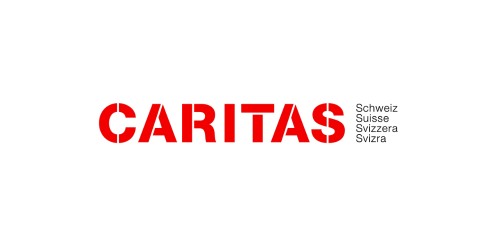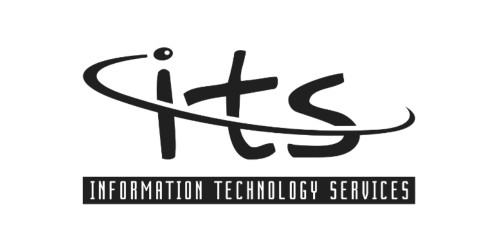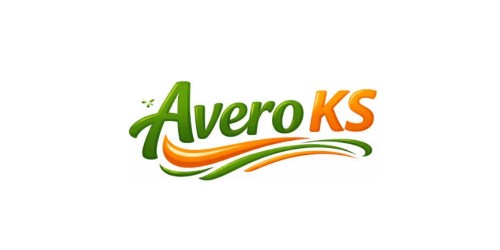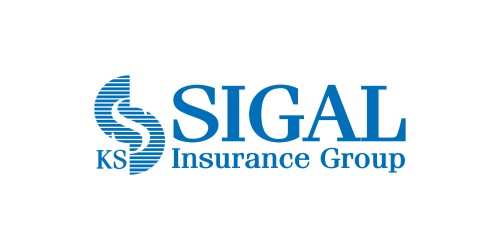
TERMS OF REFERENCE
Improving Access to Finance for Farmers and Agribusinesses in Kosovo
Consultancy on Access to Finance
in the frame of the programme Empowering Rural Economies in Agriculture (EREA),
implemented by Caritas Switzerland in Kosovo, funded by the Austrian Development Cooperation (ADC)
- BACKGROUND
The Empowering Rural Economies in Agriculture (EREA) programme in Kosovo is designed to address the evolving role of agriculture in the country's economy and environment. Currently contributing 7% to the Gross Domestic Product (GDP), the sector employs a significant quarter of the workforce, particularly in rural areas where two-thirds of the population reside. Despite its importance, agricultural productivity levels lag behind regional and international benchmarks due to limited adoption of modern inputs and technologies, insufficient expertise in good agricultural practices, restricted market integration, and challenges in accessing finance.
CACH project conducted a study to investigate possible new investment opportunities or financial support opportunities for market actors in selected value chains. The study identified financial alternatives available for agribusinesses and women-owned enterprises to invest in, ultimately resulting in greater market reach and increased production, both in terms of quality and quantity. Based on this study, the new programme will design interventions for the development of an Access to Finance Mechanism that will improve access to finance for market actors involved in the production, aggregation and processing.
There are numerous constraints identified that could and must be addressed to bring about systemic change in the assessed agricultural sectors. Some constraints are relevant to all sectors like access to finance with high interest rates and short grace periods.
Investing in new technologies requires access to finance. Accessing finance through local finance providers tends to be expensive (interest rates are high, particularly microfinance institution (MFI) interest rates) and credit terms and conditions (particularly excessive collateral requirements) are difficult to meet. As part of the previous project, an in-depth analysis of the agri-finance market in Kosovo was undertaken and informed by the findings of this analysis this programme will pilot interventions to address some of the key barriers to accessing finance.
The EREA project supports the development of an Access to Finance Mechanism that will improve access to finance for local actors, improving the bankability of farmers and agribusiness in SIRED priority sectors, by building their financial capabilities and making them more attractive as potential clients for banks and other financial services providers, thus reducing the gap between supply and demand side.
The key bottlenecks and challenges of the market actors, agribusinesses and farmers in improving access to finance for actors, which have been identified in the previous project phase are:
- Financing needs of farmers and agribusiness are diverse
- Lack of finances are constraining their ability to grow.
- Financing needs vary between the small and big market actors depending on their position within the value chain.
- The smaller actors involved in production and small-scale processing, fund their operations from their own resources and are reluctant to engage with the formal financial sector.
- Larger actors, wholesalers and exporters are able to access finance from the formal financial sector, regardless that this funding is often not enough to meet their needs.
- The terms of the finance are often unfavourable, particularly excessive collateral requirements and high-interest rates.
- Finance providers face a number of challenges in financing agriculture
- Agri-finance is considered high-risk by finance providers.
- Lending to farmers and agribusiness compounds the high inherent risks of agriculture (variations in yields due to exposure to weather conditions, diseases, and pests, as well as uncertainty and volatility in agricultural commodity prices) with the informality of many actors in the sector.
- Agri-clients are often expensive to reach for finance providers due to a combination of their small size, informal organisational structures, and remote locations.
- The time and resources required by finance providers to do application screening, due diligence and monitoring are higher for agricultural financing, resulting in high transaction costs.
- Finance providers and commercial banks have limited knowledge and understanding of agriculture are reluctant to provide loans and have no real incentive to invest in agriculture.
- Finance providers and commercial banks better respond to the financing needs of other sectors, largely due to the fact that other sectors of the economy provide easier and more profitable opportunities.
- Finance providers are constrained by the amount of capital they have available and by pressures to maximize returns with minimal risk.
In the first phase of the project the support was delivered in three stages:
- The first stage focused on identifying 4 distinct categories of pilot agribusinesses, ranging from small farmers to large enterprises and conducted a thorough analysis of their current data recording and planning practices with training needs for the development of a training syllabus. This stage included identifying finance providers involved in agro-lending and determining what kind of detailed reporting they need to incorporate in the implementation of the accounting system and the training curricula.
- The second stage included the findings and outcomes of the first stage with a proposed “set of actions” that led to the improvement of financial literacy of selected pilot agribusinesses. The implementation of the specific accounting system for 2 pilot agribusinesses commenced accompanied by training and development of the training curricula. Furthermore, the MoUs with three institutions KEP (microfinance), BPB (commercial bank) and Kosovo Credit Guarantee Fund (KCGF) have been signed.
- The third stage focused on the finalising implementation of the accounting system, on-the-job training with selected pilot agribusinesses and finalising training curricula and facilitating the pilot agribusinesses to apply for loans.
2. OBJECTIVE
The main Objective/Purpose of this assignment is to facilitate Access to Finance for market actors within the agriculture sector, including agribusinesses and farmers, to increase financial capital and sustainable investments.
This Mechanism is aimed at improving the access to finance for local market actors, improving the bankability of farmers and agribusiness in EREA priority sectors, by building their financial capabilities and making them more attractive as potential clients for banks and other financial services providers, thus reducing the gap between supply and demand side. The services are guided by the Market Systems Development (MSD) approach and are structured and aimed to provide answers to the following questions:
Demand Side – How the market actors manage the financial aspect of their business. Do they have basic financial information about their business? Do they have a structured process of daily recording or just random information gathering and how do they articulate their financial needs?
Supply Side – What products and services do financial organisations offer to farmers and agribusiness in EREA’s priority sectors? What challenges do they face in reaching these actors? What kind of preferential scheme they can develop if farmers and agribusiness develop further their financial literacy that will help them to be more bankable?
In this regard, EREA is interested in identifying private companies/service providers to create a mechanism for building and improving the financial literacy/capabilities of farmers and agribusinesses with the ultimate goal of improving their access to finance as well as testing possible options for better access to finance. Furthermore, this mechanism will focus on improving the bankability of farmers and agribusiness in EREA priority sectors, making them more attractive as potential clients for banks and other financial institutions.
Access to finance interventions were piloted and implemented with 6 subjects, three farmers and three agribusinesses, built on the finance market analysis undertaken during the previous project. In the EREA project, the training curicula, financial literacy and implementation of accounting systems and accounting solutions shall be implemented further with other market actors and beneficiaries. On the demand side, this will involve partnering with local Business Development Service (BDS) providers and supporting them with technical assistance to develop financial management training packages for market actors in the programme’s priority sectors and co-financing the piloting and testing of the delivery of this training in a commercially sustainable manner (e.g. a payment model linked to success in accessing credit from a bank or MFI). On the supply side, partnerships shall be explored with local financial services providers (commercial banks, MFIs or other alternative finance providers) to provide technical assistance to partners to develop new financing products (e.g. value chain finance, invoice factoring) and/or new delivery channels (e.g. using digital tools) to respond to the finance needs of actors (both producers and agribusinesses) in the priority sectors.
3. ROLES AND RESPONSIBILITIES
The financial consulting company must be focused on providing financing and investment advisory services to agribusinesses, market actors and farmers. The provider should have a team of experienced financial professionals who can provide valuable expertise and guidance on financial planning, risk management, and investment strategies. A partnership with a competent financial advisory for access to finance shall provide valuable resources and support for MAs seeking to grow and expand their operations. Roles and responsibilities include:
- Agribusiness Identification and Analysis: The financial consulting company will identify agribusinesses of varying sizes and conduct thorough analyses of their current data recording and financial planning processes.
- Training Syllabus Development: The company will collaborate with CACH to develop a comprehensive training syllabus tailored to the needs of the identified agribusinesses. This training will aim to enhance their financial management skills.
- Accounting Systems Development: The company will assist selected agribusinesses in developing robust accounting systems to improve financial tracking and reporting.
- Facilitation of Collaboration: The company will work closely with finance providers to foster collaboration between agribusinesses, financial institutions and Business Development Services. This collaborative effort aims to facilitate access to finance and support the growth of agribusinesses in a sustainable manner.
4. DELIVERABLES
Through this assignment, the service provider is expected to achieve the deliverables/accomplishments as stated below in line with the next chapter intervention options suggested by the existing study on access to finance:
- Developing detailed service packages tailored to the needs of farmers and agribusiness, if needed by undertaking market research to better understand the types of services needed by different segments of the market and to tailor their existing service. It may involve supporting marketing and promotional activities to raise awareness of the service.
- Facilitating and promoting sustainable Loan Opportunities including green agriculture financing, or climate-smart agriculture funding with finance providers to market actors, agribusinesses and farmers.
- Identified and promoted a new mechanism for finance providers and other systemic actors to test new ideas and models for financing agribusinesses and farmers.
- Financial literacy, capability, and financial options are improved for market actors within the agriculture sector, including agribusinesses and farmers.
- Introducing different financing options available to farmers and agribusinesses, how to prepare and present financial statements to potential lenders, and how to choose the best financing options for their businesses.
- Finalization/Implementation of the Tailored Training Curricula suitable for agribusinesses in line with their requirements.
- Implementation of practical accounting software and innovative digital tools to beneficiary Market Actors/Agribusinesses.
- Digitalization of accounting systems introduced at market actors in coordination with the EREA project.
- Establishment of strategic partnerships with local finance providers, materialized through MoUs / Agreements.
- Presentation of discussion rounds, topics, recommendations and results
- Interim and final reports
5. INTERVENTION OPTIONS
. The selected or preferred intervention options shall be developed into more detailed concepts and intervention plans during the next phase of the work.
- Financial Instruments
- Co-Financing
- Loan Guarantee
- Subsidising equipment purchase
- Technical Instruments
- Technical assistance to market actor
- Convening and dialogue
- Research Instruments
- Direct research and advocacy
- Programme funded experimentation
- Supply-Side Interventions
A range of intervention options are available to improve the offer of supply-side actors to famers and agribusiness. These are set out below:
- Option 1: Expanding commercial bank financing offer to farmers and agribusiness
This intervention option focuses on partnering with local commercial banks and supporting them to develop new improved products and services for farmers and agribusiness (with a particular focus on those in EREA priority sectors) which are more aligned with their needs.
- Option 2: Making microfinance more affordable for famers and agribusiness
This intervention option focuses on the microfinance sector and, similar to the first option above, will involve supporting the sector to provide more and better financial products to farmers and agribusiness, again with a particular focus on EREA’s priority sectors.
- Option 3: Alternative financing instruments for famers and agribusiness
A range of financing sources for agriculture outside of the traditional and more established banking and microfinance sectors. These include financing options such as invoice factoring, crowdfunding, private equity, and business angel networks. Invoice factoring is particularly interesting and promising instrument for funding the working capital requirements of agribusinesses and is therefore the focus of this intervention option.
- Option 4: Development of agri-insurance products
Agricultural insurance involves the insured party (typically a farmer) paying a premium to an insurer to guarantee against losses (of crops, assets, property, livestock, or income) over a defined period of time (typically one agricultural season). Losses are usually associated with adverse weather events (e.g. drought and floods), pests and diseases or the death of livestock. The insured party is given a promise by the insurer to indemnify them (be paid back) in the event of a loss.
- Demand-Side Interventions:
Improving the bankability of farmers and agribusiness in EREA priority sectors is the focus of this intervention option - making them more attractive as potential clients for banks and other financial services providers. One broad intervention option is proposed.
- Option 5: Improving financial literacy of farmers and agribusinesses.
Financial literacy in this case is defined quite broadly, encompassing building farmer understanding of finance concepts and terminology so that they are better able to assess and evaluate the financing options available to them, as well as supporting agribusinesses to improve their bookkeeping and general financial management systems.
6. METHODOLOGY
The methodology for the development of the Access to Finance Mechanisms, under the EREA programme, will follow a comprehensive and adaptive approach. By engaging the Service Provider, the EREA programme aims to establish a solid foundation for facilitating an easier access to finances for the market actors, agribusinesses and farmers. The methodology emphasizes collaboration, training, and continuous support to ensure alignment with the MSD methodology and the achievement of programme objectives.
The main phases of this service include:
- Desk Review and Stakeholder Consultation:
- The service provider is responsible for conducting a comprehensive desk review of existing programme documentation, reports and relevant literature to gain a deep understanding of the EREA programme, its objectives, and current interventions.
- The service provider is responsible for meeting with pilot agribusinesses and farmers selected earlier during the first phase, for gathering insights into their perspectives on programme goals, challenges, and desired outcomes.
- Clarification of the TOR and the assignment.
- An introduction meeting with the project team and with the results until now, as well as the meetings with project team members.
2. Intervention Design:
The intervention options set out in previous phase of the project were the selection of the demand-side intervention idea, focused on building the financial literacy levels of farmers and agribusiness, to be implemented in this new project phase where the service provider must be engaged in development of specific results:
- Refine and implement intervention options, develop alternative solutions in order to improve the offer of supply-side actors to famers and agribusiness.
- Engagements and development with actors currently involved in the provision of factoring services locally is required. Invoice factoring is relatively new in Kosovo and only one local non-bank factoring service provider was identified. Judge the feasibility of invoice factoring.
- Market Actors, Agribusinesses and farmers to have easier and preferential access to agri-loans and other financial products in the market.
- Promotion and ensuring Green agriculture financing and/or climate-smart agriculture funding with preferential financial conditions.
| Risk Register seen by Caritas Switzerland and experts | |
| Description of the Risk (concrete event, its cause and possible negative impact) | Risk management measures planned (to reduce either likelihood or possible impact or both) |
| 1. Lack of sustainable credit guarantees scheme. | Guaranteeing a loan reduces the lender’s risk and should increase the flow of capital. Credit guarantees allow the partial transfer of credit risk stemming from a loan or a portfolio of loans and incentivise finance providers to lend to riskier clients or market segments. There is one donor-funded credit guarantee scheme in Kosovo - the Kosovo Credit Guarantee Facility (KCGF) - which shares the risks with partner commercial banks and MFIs. |
| 2. Lending to farmers and agribusiness considered high risk due to exposure to weather conditions, diseases, and pests, as well as uncertainty and volatility in agricultural commodity prices. | Digital technology contributes in reducing agri-finance risks and costs. Digital technology helps finance providers to improve decision making in the key steps involved in the lending process from securing capital to acquitting and assessing potential clients up to disbursing of funds and receiving repayments. |
| 3. Finance providers have limited knowledge and understanding of agriculture | Finance providers require reliable and up to date market information on agriculture - for example, data on short and long-term price estimates, product stocks and growth potential in particular value chains, risks etc. - to reduce the risks and costs associated with lending to agriculture. In general data collection on agriculture must be developed and streamlined since currently is fragmented and underdeveloped. |
3. Development and Implementation of the Access to finance mechanism:
- Building a practical and realistic mechanism that will improve the access to finance for agribusinesses.
- Collaborating closely with local finance providers to develop improved products and services for farmers and agribusinesses, particularly those in EREA priority sectors that better align with their needs.
- Promoting the intervention to the public and to agribusinesses, featuring the solutions provided and the benefits for the agribusinesses.
- After the development of the mechanism the service provider is responsible for working closely with the programme team to identify and define additional activities and results linked with the mechanism.
- Focusing on improving the bankability of farmers and agribusiness in EREA priority sectors making them more attractive as potential clients for banks and other financial institutions.
4. Capacity Building:
- Individual and/or collective training sessions for agribusinesses and farmers on the developed Access to Finance mechanism, loan opportunities, financial literacy and specific accounting systems in close collaboration with the EREA project team.
- Provide guidance on data management, analysis, and reporting to strengthen the capacity of the agribusinesses and market actors.
7 KEY QUALIFICATIONS
Interested service providers should be locally registered businesses with experience in the following:
- The Team Lead should have at least a Master’s degree in economics, finances or accounting;
- At least seven (7) years of experience in training provision for accounting /financial management;
- The team should be fluent in written and spoken Albanian and English. Serbian is an asset and should be spoken by at least one team member.
- Experience in digitalization of accounting systems;
- Expertise in local and national financial markets with a particular view on agricultural financing;
- Technical expertise in the field of access to finance (e.g. Loans, Credit, etc.), agriculture sector development, and financial institutions;
- Experience in the implementation of a project with an MSD approach is considered an asset;
- Experience in the implementation of a project with for access to finance is considered an asset.
8. TIMELINE
The activity will commence once the contract has been signed by both parties and will end by the end on 31.12.2024. For this activity, the consultancy amount shall not exceed 35`000 € unless negotiated in advance with the EREA Project Manager and approved by the Caritas Switzerland Country Director.
9. PROPOSAL SUBMISSION PROCESS
- The project proposal/methodology for the development of an access to finance mechanism shall be presented;
Interested private companies/service providers are requested to submit an electronic copy of their expression of interest/proposal by the 21st of March 2024 with the subject REF: “Access to Finance Mechanism “to [email protected] and [email protected]; in the CC line
Applicants must submit:
- Professional profile of the team/company (CVs of all individuals included in the assignment);
- References showing the company’s/service provider’s suitability and previous work experience, qualifications etc. related to this assignment;
- Composition and division of work between team members;
- Draft work plan and suggested timetable;
- Financial offer/detailed budget for the assignment based on the proposal and the set timeframe.
The offer will be evaluated by using the best value for money approach (combined scoring method). Technical proposal will be evaluated with 80% weight, whereas the financial one will be evaluated with 20%. Offers that do not include all submission requirements will not be evaluated and considered ineligible.
Bidding Cost: Caritas Switzerland in Kosovo will not cover bidding costs and reserves the right to accept or refuse bidders, or to annul or postpone the whole bidding process before signing of any agreements.











-thumbnail.jpg)